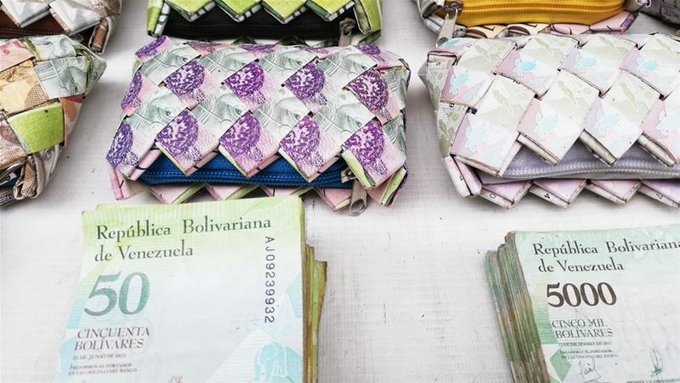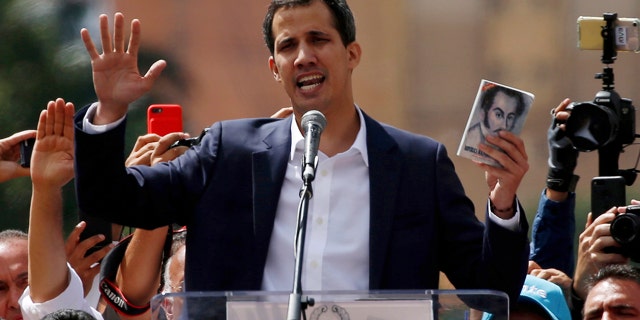
Venezuela – once one of the more prosperous countries in Latin America – has been driven into such economic and political turmoil that its currency is no longer of any use.
However, that has not stopped Venezuelan bolivares from becoming a commodity elsewhere.
“These bolivares soberanos notes are worth nothing,” Cordero, who is from Caracas, told Al Jazeera. “These notes I use are not circulating any more since last year.”
The
report says Cordero uses about 70 notes of 100 bolivares to handcraft a
small coin purse or at least 100 notes to weave a larger wallet. A
handbag, he says, can take upwards of 1,200 notes to produce.
The
technique he uses is called “origami venezolano” and he told Al Jazeera
that he learned the technique by studying videos on YouTube and watching
others in the streets of Caracas.
"When I run out of bolivares,
my brother goes to Venezuela and brings more notes," Cordero said.
"People have a lot of these notes and we buy them. We give them what
they ask for."
He said people in Venezuela will exchange the worthless bills for other currency – most commonly U.S. bills – or for food.
Data
from the opposition-controlled National Assembly shows the inflation
rate for October 2019 was 20.7 percent and the cumulative inflation for
2019 was 4,035 percent. The International Monetary Fund (IMF) estimates
Venezuela’s inflation this year will reach 200,000 percent - and that
the economy will contract by 35 percent, Al Jazeera reported.
Since January, the Venezuelan people have been thrust into a political push-and-pull between embattled leader Nicolas Maduro and opposition leader Juan Guaido, who took the role of interim president earlier this year and created a parallel government.

Juan Guaido, head of Venezuela's opposition-run congress, declares
himself interim president of Venezuela, during a rally demanding
President Nicolas Maduro's resignation in Caracas, Venezuela, Wednesday,
Jan. 23, 2019. (AP Photo/Fernando Llano)
The United States and dozens of other nations
threw their support behind the youthful congressional leader,
recognizing him as the country's legitimate president. They argued that
Maduro's re-election was invalidated by fraud and a ban on most
opponents.
However,
cracks have appeared in Guaidó's base of support in the National
Assembly and his re-election as congressional president is no longer
assured.
Despite
sitting atop the world's largest proven oil reserves, gasoline
shortages plague the nation, most homes don't have reliable drinking
water or electricity, and there are shortages of food, medicine, and
spare parts. Roughly 4.5 million people have left the country, figures
that rival mass migration from war-torn Syria.
Maduro, whose
approval ratings in the other polls have dipped closer to 10 percent,
has proven more resilient than many expected.
Venezuela's
oil production has inched up for the second consecutive month after
crashing to a seven-decade low under U.S. sanctions, and shoppers are
increasingly pulling U.S. dollars from their wallets — a sign the
economy is bouncing back, or at least stabilizing, due in part to an
easing of currency controls that the government had earlier resisted.
In
January, the National Assembly must decide whether to extend Guaidó's
tenure, and he said he is confident he has the backing to be re-elected.
Analysts say appointing any alternative would be devastating for the
opposition.
The Associated Press contributed to this report.
No comments:
Post a Comment